What is the Best Algebra Book in the World?
Algebra, the branch of mathematics that deals with symbols and the rules for manipulating those symbols, is considered a cornerstone of mathematical understanding. A strong foundation in algebra is a gateway to success in other advanced math and science disciplines. The role of quality algebra books, therefore, is of utmost importance in shaping a solid foundation. But what makes a book the best algebra book in the world?

The Importance of Good Algebra Books
Good algebra books are more than just texts filled with mathematical concepts. They are stepping stones that foster a deeper understanding, create a love for the subject, and develop a logical, analytical way of thinking. The best algebra books make the subject approachable and enjoyable.
The Absolute Best Book to Ace Pre-Algebra
Deciphering the Best Algebra Books
Unraveling the world of algebra books can seem like an uphill battle, given the myriad of choices available. With books catering to different skill levels, pedagogical approaches, and even visual aesthetics, choosing the one that resonates with your learning style becomes a task in itself. The pursuit for the best algebra book thus becomes an exercise in understanding your own learning preferences, coupled with the inherent qualities that make a book exceptional.
Criteria for Choosing the Best Algebra Books
When we speak of the best algebra books, the criteria stretch beyond mere popularity or well-known authors. Here are some factors that should be considered while choosing your algebraic companion:
- Clarity of Explanations: Mathematics, and especially algebra, is a subject that thrives on precision. A good algebra book will provide lucid, concise, and clear explanations that make understanding complex concepts a breeze.
- Quality of Examples: Real-world examples and applications go a long way in developing an appreciation for the subject. The best algebra books leverage examples that are relatable, practical, and illustrative of the concepts being explained.
- Level of Difficulty: The book should align with your current knowledge level. It’s counterproductive to dive into a book that is too advanced, as it could result in confusion and demotivation.
- Accessibility of the Content: The best algebra books are inclusive, taking into account that learners have diverse backgrounds. They ensure that content is accessible to all, irrespective of their prior knowledge or experience with algebra.
- Effectiveness of Practice Problems: Learning algebra is a hands-on process. The quality and diversity of practice problems significantly affect the learning outcome. Good algebra books offer a wide range of problems for practice, ranging from simple to complex, reinforcing the understanding of the concepts.
- Pedagogical Approach: The teaching strategy used by the book also matters. Some learners prefer a more formal, structured approach, while others may benefit from a more interactive, engaging style. Finding a book that matches your preferred learning style can significantly enhance your understanding and enjoyment of algebra.
Best Algebra Prep Resource
Understanding Levels in Algebra Books
Algebra is not a monolithic subject. It spans a range of topics and levels, from elementary algebra dealing with simple equations to abstract algebra grappling with concepts like groups, rings, and fields. Consequently, algebra books are designed to cater to these diverse levels.
Beginner-level books focus on establishing the foundations, equipping learners with the basics of algebra. They start with simple concepts like variables, equations, and inequalities and slowly build toward more complex topics.
Intermediate-level books take the foundational knowledge a step further. They introduce more advanced topics like functions, linear equations, quadratic equations, and exponential functions. These books typically cater to high school or early college students.
Advanced-level books delve into the intricacies of algebra, discussing complex topics like abstract algebra, linear algebra, or algebraic geometry. These are typically meant for university students or learners pursuing advanced studies in mathematics.
The best algebra books respect this gradation in levels. They offer content that’s appropriate for the intended level of the learner, ensuring a smooth learning curve from the basics to the more complex aspects of algebra. They scaffold the learning, ensuring that each new concept or technique builds logically on what has been previously learned.
An In-depth Look at “Algebra I for Beginners”
As we navigate through the realm of algebra books, one title that consistently rises to the top, especially for beginners, is Algebra I for Beginners. This well-loved book takes novices on an enlightening journey through the basics of algebra, gently transforming them from beginners to confident solvers of algebraic equations.
Content Overview of “Algebra I for Beginners”
Algebra I for Beginners is much more than a simple introduction to algebra. It’s a book that has been meticulously crafted to take readers step-by-step through the essential topics they need to grasp as they venture into the world of algebra. The journey begins with a refreshing exploration of basic arithmetic operations, grounding the reader with a solid foundation before embarking on the more complex algebraic terrain.
From there, the reader is gradually introduced to the world of algebraic equations, inequalities, and functions. Each new concept is illustrated with clear explanations, meticulously designed to simplify complex ideas into digestible parts. A host of examples accompany the lessons, demonstrating how the concepts are applied and providing the necessary context to bring the algebraic theories to life.
Moreover, the book includes a variety of practice problems. These problems span from simple to complex, catering to different comprehension levels and allowing the reader to gradually increase their proficiency through active learning.
Why Choose “Algebra I for Beginners”
Algebra I for Beginners stands out for its unique approach to teaching algebra. Its content, structure, and pedagogical design all contribute to making it an ideal starting point for anyone venturing into algebra.
The book’s strength lies in its simplicity and clarity. It does not assume any prior knowledge of algebra, making it accessible to everyone. The concepts are broken down into easy-to-understand chunks, each building on the last, creating a natural and smooth progression in learning.
Furthermore, the book encourages self-paced learning. It allows learners to take control of their own learning journey, letting them progress at a pace that suits their understanding and comfort level. This is not just a book; it’s a personalized tutor guiding learners through their algebraic journey, making “Algebra I for Beginners” one of the best algebra books in the world.
Advancing with “Algebra II for Beginners”
Once the basics have been mastered and the world of algebra no longer seems daunting, it’s time to elevate the learning journey. For those who are ready to take the next step, “Algebra II for Beginners” is the perfect sequel.
Content Overview of “Algebra II for Beginners”
Algebra I for Beginners takes the foundation established in the first book and builds upon it, delving deeper into the more advanced aspects of algebra. It introduces learners to complex numbers, logarithmic functions, and polynomial functions, among other topics, broadening the scope of understanding and skills.
As with its predecessor, Algebra I for Beginners maintains a high standard of clarity in explanations. It carries on with the tradition of providing ample examples that reinforce learning. The progression in this book is also designed to encourage self-paced learning, ensuring that the transition from beginner to more advanced algebra is as smooth as possible.
Why Choose “Algebra II for Beginners”
Choosing “Algebra II for Beginners” is a natural choice for those who want to advance their algebra knowledge. It not only builds upon the concepts learned in “Algebra I for Beginners” but also introduces new, more complex topics. This elevates the challenge and keeps learners engaged, encouraging them to push their boundaries and expand their understanding of algebra.
The seamless progression between the two books ensures continuity in learning, enabling learners to maintain and build on the momentum generated in the first book. This continuity, coupled with the enhanced depth and breadth of content, makes “Algebra II for Beginners” an indispensable resource for anyone ready to level up their game in algebra.
Final Words
Navigating the world of algebra can often feel like venturing into a labyrinth with its twists, turns, and complexities. The key to conquering this labyrinth lies in finding the right guidebook that can illuminate the path and make the journey enjoyable, and perhaps even a little exciting. In the realm of such guidebooks, “Algebra I for Beginners” and “Algebra II for Beginners” shine brightly as beacon lights.
The best algebra books in the world are those that go beyond just presenting information. They are the ones that transform the often intimidating realm of algebra into an accessible and engaging landscape. They breathe life into abstract concepts, turning them into comprehensible and relatable ideas. They walk with you, step by step, demystifying the intricacies of algebra, and bolstering your confidence along the way. And most importantly, they challenge you in just the right measure, nudging you gently out of your comfort zone to explore new territories in your learning journey.
“Algebra I for Beginners” and “Algebra II for Beginners” are the embodiment of these ideals. They approach the teaching of algebra with the perfect balance of clarity, depth, and challenge. The simplicity and eloquence of their explanations, the diversity and practicality of their examples, and the carefully designed progression of their content make them fitting companions for anyone embarking on the journey of algebra.
Starting with the basics and gradually escalating the complexity, these books ensure that you always feel supported and adequately challenged, irrespective of where you stand in your algebra journey. They provide not just knowledge, but also cultivate an appreciation for the subject, fostering a mindset of curiosity, exploration, and continual learning.
In conclusion, whether you’re a newcomer dipping your toes into the algebraic waters or a seasoned learner looking to delve deeper into the ocean of algebra, “Algebra I for Beginners” and “Algebra II for Beginners” are the guides you need. They hold the power to transform algebra from a formidable adversary into a friendly ally. With these books in your arsenal, you can embark on your algebra journey with confidence, assured that you have the best guides to navigate the fascinating world of algebra.
FAQs
1. What Makes “Algebra I for Beginners” a Suitable Choice for Beginners?
“Algebra I for Beginners” shines as an introductory algebra book for beginners for several reasons. It takes complex algebraic concepts and breaks them down into manageable, easily digestible chunks. This makes the learning process smoother and less overwhelming for those new to the subject. Additionally, the book strongly advocates for self-paced learning. This approach respects each learner’s individual pace and understanding, allowing them to gradually and confidently ease into the world of algebra.
2. Can “Algebra II for Beginners” Cater to Advanced Students?
Absolutely! “Algebra II for Beginners” is designed to take learners into deeper waters of algebra. It covers more complex topics, furthering the basic concepts introduced in the first book. This makes it a suitable choice for learners who have a strong grasp of the basics and are ready to tackle more advanced algebraic concepts. Hence, whether you’re an intermediate learner looking to fortify your knowledge or an advanced student seeking new challenges, this book is an excellent resource.
3. What Factors are Important When Choosing an Algebra Book?
Choosing an algebra book that suits your learning style and needs is crucial. When making this choice, several factors should be taken into account. These include the clarity of explanations, the quality and relatability of examples, the level of difficulty in relation to your current understanding, and the effectiveness and diversity of practice problems. Other considerations might include the book’s pedagogical approach, its accessibility in terms of language and presentation, and its overall structure and progression.
4. How do “Algebra I for Beginners” and “Algebra II for Beginners” Facilitate Algebra Learning?
“Algebra I for Beginners” and “Algebra II for Beginners” excel in their instructional approach to teaching algebra. Both books are imbued with clear and concise explanations, making even the most complex concepts comprehensible. They employ ample real-world examples to demonstrate how the algebraic principles apply in various contexts, thereby adding a level of practicality to the learning experience.
Moreover, the books include a plethora of practice problems of varying degrees of difficulty. This range caters to different proficiency levels and ensures that learners can apply and reinforce what they’ve learned.
Finally, these books are structured to support self-paced learning. They offer a clear, logical progression from basic to more complex concepts, allowing learners to advance at a pace that matches their understanding and comfort. This careful design and learner-centered approach make “Algebra I for Beginners” and “Algebra II for Beginners” standout resources in the pursuit of algebra mastery.
The Best Books to Ace Algebra
Related to This Article
More math articles
- The Ultimate 6th Grade MCA Math Course (+FREE Worksheets)
- 6th Grade PARCC Math FREE Sample Practice Questions
- The Wonderful World of the Triangle Inequality Theorem
- FREE 8th Grade MAP Math Practice Test
- Calculating the Surface Area of Prisms and Cylinders
- FREE CLEP College Algebra Practice Test
- Travel-Friendly Teaching Supplies for A Portable Classroom
- How to Find Inverses of 2×2 Matrices?
- How to Use Partial Products to Multiply One-Digit Numbers By Multi-digit Numbers
- How to Decod Decimal Numbers: Dive into Place Values
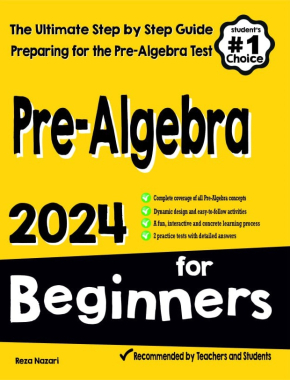

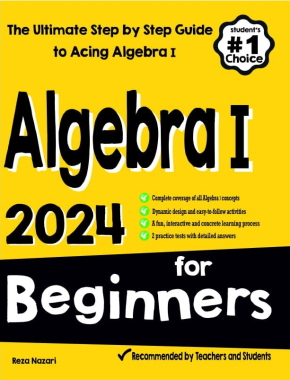
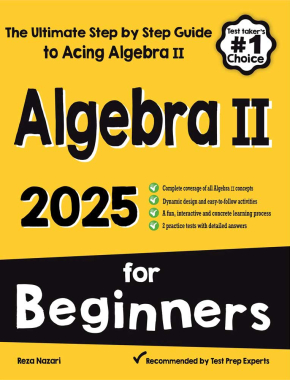
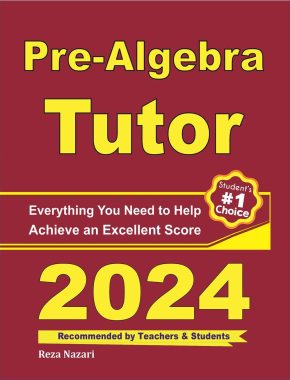
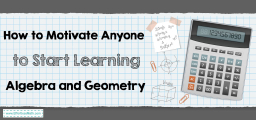
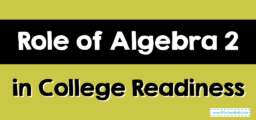

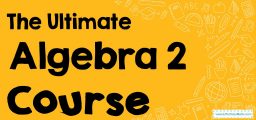
What people say about "What is the Best Algebra Book in the World? - Effortless Math: We Help Students Learn to LOVE Mathematics"?
No one replied yet.